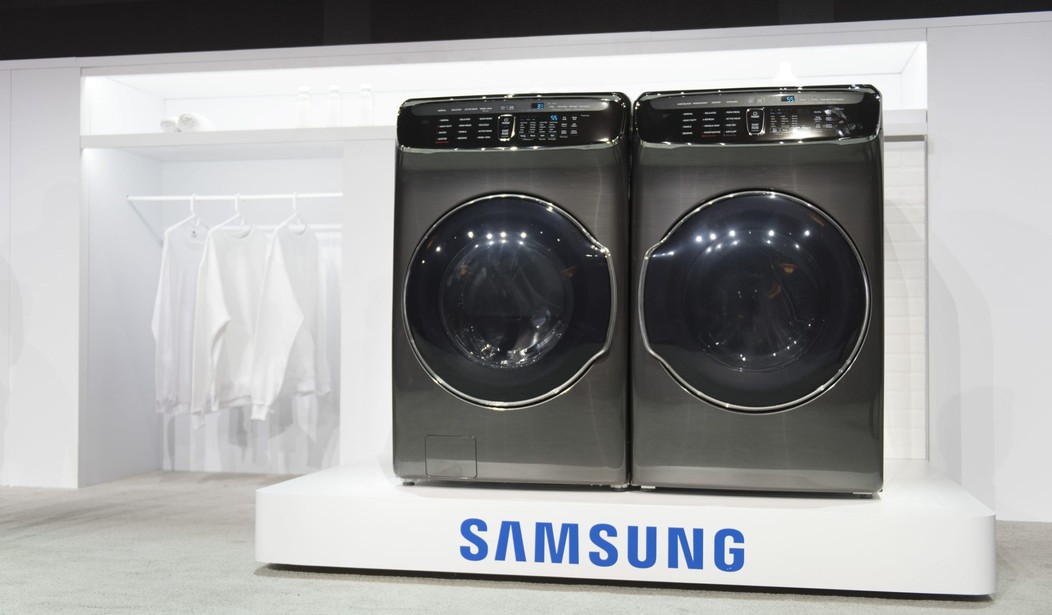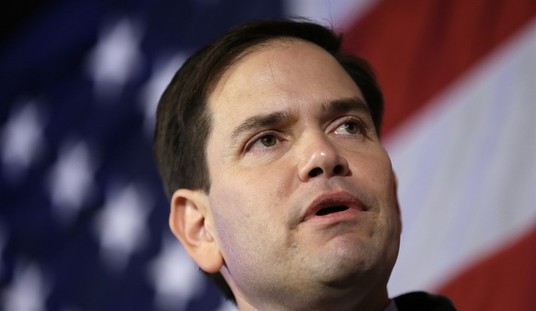Every child knows the basic rule that cheaters should never prosper, because if they do, there is no incentive to play by the rules.
The same holds true for trade deals. Trade deals have rules associated with them, and Samsung and LG have been found guilty three times since 2011 of violating the rules of the free trade agreement between South Korea and the United States (KORUS) when it comes to dumping washing machines onto the U.S. market.
The latest finding by the International Trade Court ruled that the two South Korean companies moved manufacturing operations to small, developing nations to avoid export restrictions built into KORUS.
The result of Samsung and LG’s dumping campaign is that the companies have moved from barely being on the chart to the numbers one and two positions in washing machine sales in the United States in 2016 at 18 and 16 percent of sales, respectively.
For their third violation of the trade-dumping rules in six years, the ITC has recommended that President Trump should put a 50% tariff on Samsung and LG washers as a penalty for their continual and systematic abuse of the KORUS agreement.
Meanwhile some in Congress are urging the president to go soft on the manufacturers as they each have announced plans to build washing machines in Tennessee and South Carolina now that they have cheated to gain a dominant position in the marketplace.
That would be a mistake.
In fact, the one way to ensure that the two rogue companies actually build manufacturing plants in the United States is to enforce the ITC import tariff penalty against them, as their domestically produced washing machines would not be subject to it, and encourage them to shift manufacturing to the United States to meet their ill-gotten market share.
With a decision likely in January, President Trump should enforce the full extent of the ITC sanctions against two companies that manipulated and abused the letter and spirit of the KORUS agreement and send a strong message that trade deals will be enforced.
While in the Samsung/LG washing machine case the ITC made the right decision, they shanked their recommendation in a solar panel case when the court found in favor of two solar companies: SolarWorld and Suniva.
SolarWorld is a German company whose major investor is the Qatar Foundation, an entity of the Qatari royal family. The Qatari investors would be the main beneficiaries of any decision benefiting Solar World.
Suniva is the other company asking for tariffs against foreign manufactured solar panels. This Chinese-owned company is controlled by a hedge fund based in Guernsey, an offshore tax haven. After benefiting from $48 million in federal taxpayer subsidies from Obama’s green investing scam, and even using prison labor to build their products, Suniva still went bust.
Opposing new tariffs on imported solar panels are more than 1,000 U.S. companies in the Solar Energy Industries Association.
Refuting that the foreign competition had anything to do with the failure of Solar World, James Lamon, CEO of Depcom, testified before the ITC, “Depcom had to exert oversight and pressure to get SolarWorld to deliver its product, which was never delivered on time — a product we believed…was made in America…when in fact, per the label on the modules, was manufactured in Germany and Thailand.”
Once again President Trump will decide whether to enact the ITC’s recommendation or not, and in the SolarWorld/Suniva case, he should stand on the side of American workers and companies, and just say no to the crony capital funded Chinese Suniva and its co-plaintiff the German/Qatari SolarWorld.
The net effect of the ITC decision would be the doubling of the cost of solar panels coupled with the loss of almost 100,000 American jobs, all with the goal of making Chinese and Qatari investors whole on one of Obama’s green energy schemes.
It is important to continue enforcing trade laws and the International Trade Court generally does a great job of discerning the right answer in enforcing our trade laws, as they did in the Samsung/LG dumping abuse case. It is indefensible that these two companies should reap the reward of having abused KORUS with no downside penalty.
However, in the case of SolarWorld and Suniva, enforcement of the ITC decision benefits foreign entities and could snuff out American jobs from Muscle Shoals, Alabama, to Youngstown, Ohio.
President Trump is in the process of deciding final disposition of both cases, and he should give the ITC a split decision – enacting full enforcement of the Samsung/LG tariff penalties while turning aside the SolarWorld/Suniva decision as detrimental to the interests of America workers.
The author is president of Americans for Limited Government









Join the conversation as a VIP Member